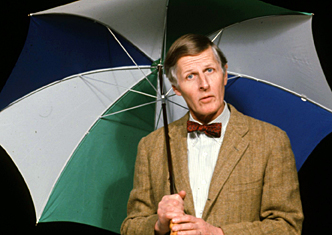Nice Above Fold - Page 975
Sunni Khalid settled a racial and religious discrimination lawsuit filed against NPR in 1997. (Fifth item.) [Earlier coverage in Current.]
Cincinnati’s Xavier University sold public station WVXG to HON Broadcasting Co. of Columbus, a commercial broadcaster, reports the Marion Star.
Fun Fact about Ira Glass No. 483: He is a vegetarian who sometimes gets “obsessed with meat,” reports The Oregonian.
WNED’s third annual Buffalo Niagara Guitar Festival opens June 15 with acts including the Yardbirds, Buddy Guy, Larry and Murali Coryell and Christopher Parkening. Why in Buffalo? The Buffalo News asks and answers the question.
KERA in Dallas may run a city-owned classical station under a plan being considered by city government, reports the Star-Telegram. An Observer columnist (5/29 , 6/5) questions whether the public station is up to the task.
Cartoonist Ted Rall has an idea for PBS’s next reality show.
NPR’s new deal with the online mag Slate to co-produce a daily newsmag uncomfortably smacks of commercialism, say Mark Glaser of the Online Journalism Review and others.
The Weekly Standard takes aim at Bill Moyers for failing to acknowledge that many of his Now interview subjects have received money from the Schumann Foundation, which Moyers heads. Moyers responds on the Now website.
Only NPR and PBS gave serious coverage to the FCC’s revision of media ownership rules in the weeks before the decision, says the Poynter Institute’s Al Tompkins.
Boston’s WBUR-FM dropped Fresh Air and has no definite plans for its reinstatement, angering some fans, according to the Boston Herald.
David Otis Ives cultivated an eccentric Yankee image as a WGBH pitchman that endeared him to New England audiences and helped fuel the Boston station’s emergence as a national production powerhouse. His enthusiasm for the station seemed boundless as he demonstrated pledge premiums, performed songs and skits, and even rode an elephant on camera.
Ives
Beneath the madcap persona, WGBH’s fourth president was a stickler for good grammar, deportment and intellectual rigor — standards he set with “great humor and grace,” recalled Brigid Sullivan, VP of children’s, educational and interactive media.
Ives, 84, died May 16 after becoming ill while visiting family in San Francisco.
It’s 8:30 p.m. Eastern time on CNBC, and four chimes are sounded. A series of images follow: George Washington in front of the New York Stock Exchange, the Statue of Liberty, the bronze bull in perpetual snarl at the tip of Manhattan.
A few remote-control clicks away, four eerily similar chimes can be heard at the same time on PBS, ushering in a different flurry of stock footage. These images are less “top-down”: businessmen and businesswomen collaborating around a conference table and a spinning globe that morphs into the eye of a woman looking at her computer screen, as if to remind us of the hallucinatory effects of staring too long at stock charts.
Children’s TV producers for WGBH and Reading Rainbow have taken unusual steps to keep their programs on the air. For the first time ever, WGBH will produce a new preschool series for a commercial outlet. Reading Rainbow host LeVar Burton appealled publicly for outside funding to keep the award-winning series going.
Uncooperative Iraqi prisoners of war are being forced to listen to Barney’s “I Love You” song, the Sesame Street theme and heavy metal music, reports the BBC. [Via randomWalks.]
Chevron Texaco said May 20 that it will end its longterm sponsorship of Metropolitan Opera broadcasts next April, the San Francisco Examiner reported. The opera company vowed to find new sponsors. Texaco began sponsoring the broadcasts in 1940, according to a company press release.



